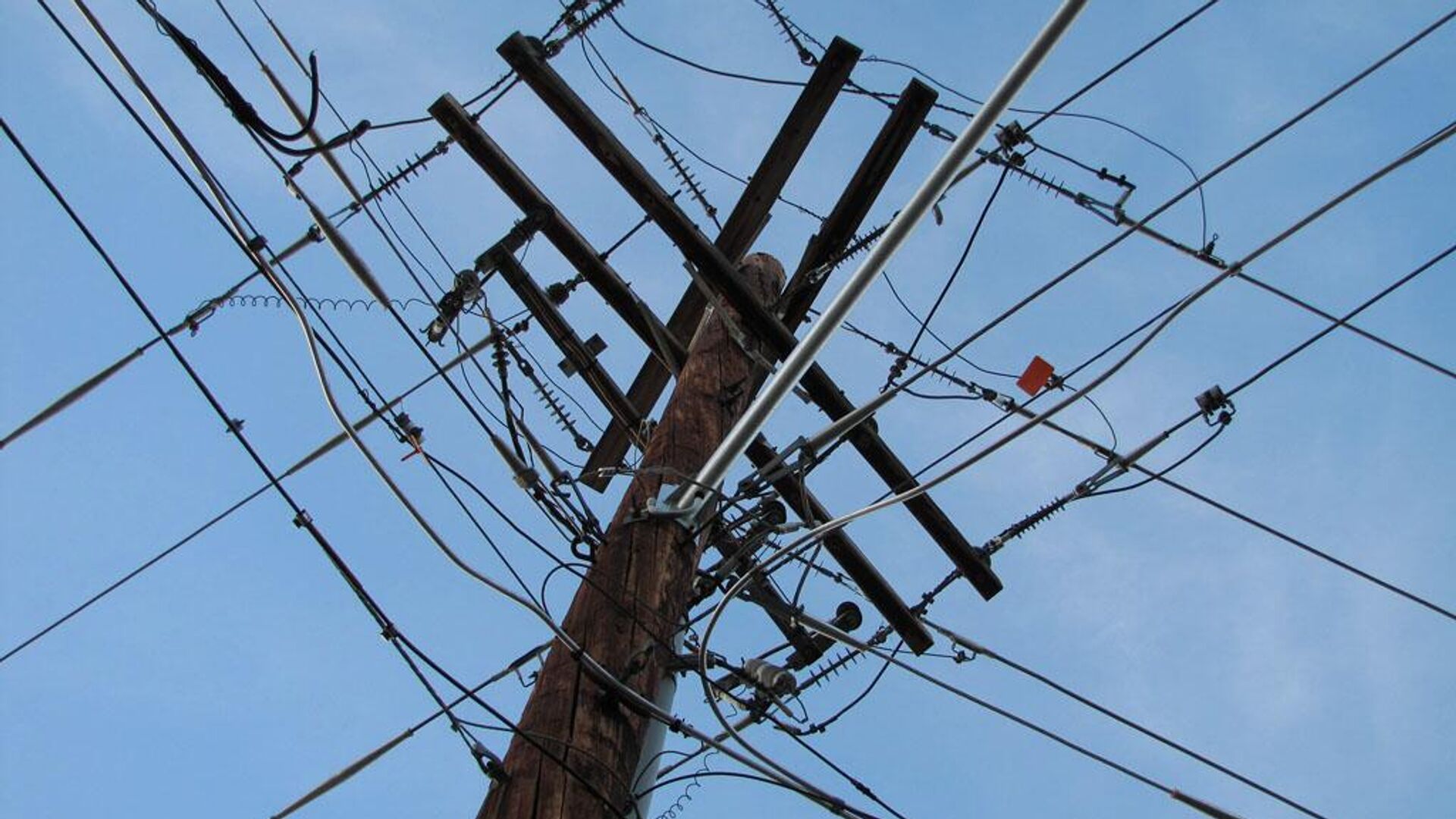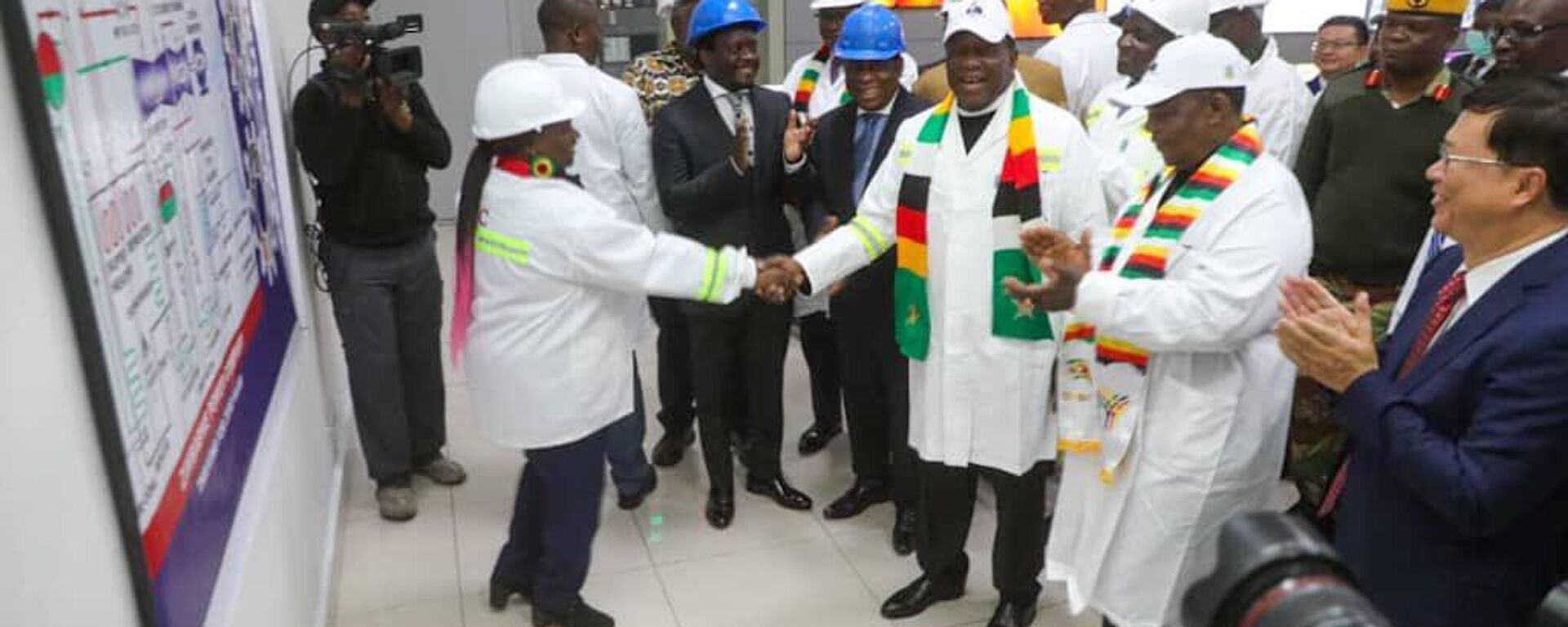https://en.sputniknews.africa/20231108/this-african-nation-aspires-to-energy-self-sufficiency-1063410759.html
This African Nation Aspires to Energy Self-Sufficiency
This African Nation Aspires to Energy Self-Sufficiency
Sputnik Africa
Zimbabwe's current generation capacity is 1,280 MW and the average local demand is about 1,850 megawatts, according to the government. To meet the shortfall... 08.11.2023, Sputnik Africa
2023-11-08T16:02+0100
2023-11-08T16:02+0100
2023-11-08T16:40+0100
sub-saharan africa
zimbabwe
electricity
southern africa
emmerson mnangagwa
russia
china
power
renewable energy
https://cdn1.img.sputniknews.africa/img/07e7/0b/08/1063415318_0:97:1024:673_1920x0_80_0_0_48fa498ba86b0b24d435a9afff1bab49.jpg
Zimbabwe's cabinet has reviewed and approved the country's roadmap to electricity self-sufficiency, which hopes to ensure that it does not import electricity by 2025, local media reported, citing Zambabwe's Information Minister Dr. Jenfan Muswere.The minister said that the strategy includes the restructuring of the Zimbabwe Electricity Supply Authority (ZESA) and the decommissioning of small thermal power stations to reduce power wastage.The minister revealed that the cabinet has decided to shut down small thermal power stations, namely Harare, Munyati and Bulawayo, which have been operating for a week or two without generating a single megawatt of electricity.In addition, to enhance energy production, the government will back private sector coal mining initiatives and new technologies such as clean hydrogen, floating solar panels, battery energy storage systems and fund some renewable energy projects, he added.Earlier, ZESA declared the goal of doubling the country's energy grid by 2025, which now stands at 1,280 MW.In early August, Zimbabwean President Emmerson Mnangagwa announced the expansion of the Chinese-funded Hwange Thermal Power Station, adding 600 MW to the country's national grid. The president said that the investments of this nature move Harare closer to achieving the goals of Vision 2030, a program aimed at fundamentally transforming Zimbabwe into an upper-middle income country.Furthermore, in late July at the Second Russia-Africa Summit, Harare and Moscow signed an intergovernmental agreement on cooperation in the peaceful use of nuclear energy.In recent years, the country has experienced severe power shortages, which have been attributed to increased economic activity, particularly in the mining industry, whose expansion has created a high demand for electricity. Only in early July, Zimbabwe's cabinet declared an end to power cuts that at their worst lasted up to 19 hours a day, disrupting commerce and the economy.
https://en.sputniknews.africa/20230804/leapfrog-to-league-of-progressive-nations-zimbabwe-opens-chinese-600mw-power-stations-1061056135.html
zimbabwe
southern africa
russia
china
Sputnik Africa
feedback@sputniknews.com
+74956456601
MIA „Rossiya Segodnya“
2023
Maxim Grishenkin
https://cdn1.img.sputniknews.africa/img/07e7/0a/17/1063018107_0:0:1104:1103_100x100_80_0_0_03090c85a11f5d2e8a19cf1d989443c9.jpg
Maxim Grishenkin
https://cdn1.img.sputniknews.africa/img/07e7/0a/17/1063018107_0:0:1104:1103_100x100_80_0_0_03090c85a11f5d2e8a19cf1d989443c9.jpg
News
en_EN
Sputnik Africa
feedback@sputniknews.com
+74956456601
MIA „Rossiya Segodnya“
Sputnik Africa
feedback@sputniknews.com
+74956456601
MIA „Rossiya Segodnya“
Maxim Grishenkin
https://cdn1.img.sputniknews.africa/img/07e7/0a/17/1063018107_0:0:1104:1103_100x100_80_0_0_03090c85a11f5d2e8a19cf1d989443c9.jpg
zimbabwe, electricity, southern africa, emmerson mnangagwa, russia, china, power, renewable energy
zimbabwe, electricity, southern africa, emmerson mnangagwa, russia, china, power, renewable energy
This African Nation Aspires to Energy Self-Sufficiency
16:02 08.11.2023 (Updated: 16:40 08.11.2023) Zimbabwe's current generation capacity is 1,280 MW and the average local demand is about 1,850 megawatts, according to the government. To meet the shortfall, the country is currently importing power in the range of 200-500 MW.
Zimbabwe's cabinet has reviewed and approved the country's roadmap to electricity self-sufficiency, which hopes to ensure that it does not import electricity by 2025, local media reported, citing Zambabwe's Information Minister Dr. Jenfan Muswere.
The minister said that the strategy includes the restructuring of the Zimbabwe Electricity Supply Authority (ZESA) and the decommissioning of small thermal power stations to reduce power wastage.
"The government will restructure the power utility company (ZESA), decommission and re-purpose the small thermal power stations, contain technical and non-technical losses and implement various power saving initiatives," Muswere said, as quoted by media.
The minister revealed that the cabinet has decided
to shut down small thermal power stations, namely Harare, Munyati and Bulawayo, which have been operating for a week or two without generating a single megawatt of electricity.
In addition, to enhance energy production, the government will back private sector coal mining initiatives and new technologies such as clean hydrogen, floating solar panels, battery energy storage systems and fund some renewable energy projects, he added.
Earlier, ZESA declared the goal of doubling the country's energy grid by 2025, which now stands at 1,280 MW.
In early August, Zimbabwean President Emmerson Mnangagwa announced the expansion of the Chinese-funded Hwange Thermal Power Station, adding 600 MW to the country's national grid. The president said that the investments of this nature move Harare closer to achieving the goals of Vision 2030, a program aimed at fundamentally transforming Zimbabwe into an upper-middle income country.
Furthermore, in late July at the Second Russia-Africa Summit, Harare and Moscow
signed an intergovernmental agreement on cooperation in the peaceful use of nuclear energy.
In recent years, the country has experienced severe power shortages, which have been attributed to increased economic activity, particularly in the mining industry, whose expansion has created a high demand for electricity. Only in early July, Zimbabwe's cabinet
declared an end to power cuts that at their worst lasted up to 19 hours a day, disrupting commerce and the economy.



